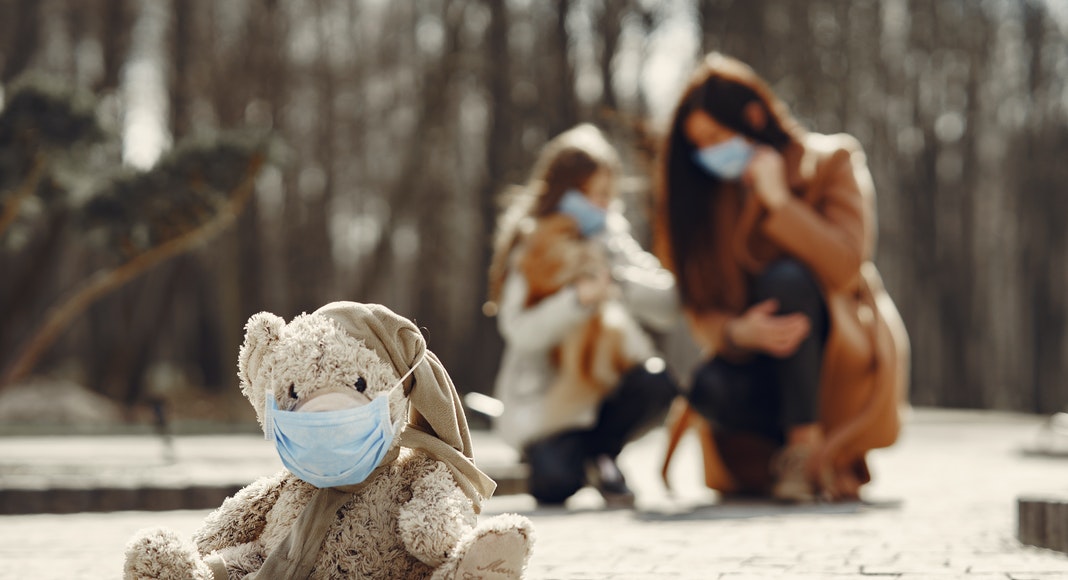 This is the year of impossible choices. Absolutely crushing, no-good-options, completely impossible choices. For everyone…but maybe especially parents.
This is the year of impossible choices. Absolutely crushing, no-good-options, completely impossible choices. For everyone…but maybe especially parents.
Keeping children inside and away from other kids for a few weeks is one thing. What about keeping them away from children for a year? What kind of life long effects does this have on children’s social and emotional wellbeing? This is not an exaggerated fear. What does it mean for a generation of small children not to see strangers smile at them? What does it mean for children’s speech development when their teachers are all wearing masks? We do not know the answers to these questions, and speculation is terrifying. How can we expect our teenagers to spend a year not socializing in person? Teenagers have a biological drive to be with one another. The pull is too strong.
In 2020, there is a new kind of text message that parents send each other and it is some variation of this: “I’m so so sorry that we can’t make it to ____’s small socially distanced masked birthday party, we’re going to visit my parents and my dad is immune compromised and…” Parents, prone to over-apologizing during normal times, are in hyper-apology mode in 2020. A kid comes too close to another child in the playground “I’m so sorry!” A child hugs and kisses a friend “oh no! I’m sorry he forgot he can’t do that!”
We are teaching children to keep their distance from each other. We are teaching them to avoid hugs and kisses. To avoid sharing toys. We are teaching them not to touch strangers. We are doing this because we have to do this. Because it keeps us safe. Every day we are engaging in practices that go against what is developmentally appropriate for our children. And we have no choice. The alternative, to ignore public health recommendations, is worse.
If we keep schools closed, our children suffer, specifically the most vulnerable among us. Every day schools remain closed is another day disadvantaged children are falling behind. And yet, if we reopen our schools we are endangering the health and safety of the entire school community. Distance learning isn’t the same as in person learning. We know this. And yet we are doing it. Because we have had to make an impossible choice.
The childcare centers where I work have been open since early July. Every day, we confront this question: should we even be open? Should we close our childcare centers during a pandemic? This means losing our funding and closing permanently. This means putting over a hundred people out of work. This means not providing childcare to folks on the front lines of this pandemic, the grocery store workers and bus drivers. Do we stay open and continue providing the subsidized child care our families need in order to work? Even though staying open meaning putting our staff and families at risk? Working in early childhood education during a pandemic means facing impossible decisions daily.
It’s easy to paint these choices in black and white. People who are making COVID-safe choices and those who aren’t. But the reality is so much more nuanced than that. Most of us are trying to do what is right for our children and our family. We are all balancing, choosing, deciding between two horrible options.
This is the year of impossible choices. And until we have found our way out of this thing, the impossible choices will continue. As parents we are good at apologizing and compromising and understanding one another. But we are also prone to judgement. Parents love complaining to one another about other parents. It’s one of our favorite pastimes. It feels good to criticize another parent’s decision to allow her children to go to a playdate, or travel to see grandparents. Or to judge another parents decision to stay indoors for months out of precaution.
We should all be honest with one another. About our risk, about our exposure. But we should also understand that in a world of completely impossible choices, we are doing the best we can to keep our children safe, happy and developmentally on track. Let’s continue to be there for each other throughout this pandemic, and beyond.














